In 1944, a woman named Anne Schreiber retired. She had worked all her life for a salary never exceeding $4,000 a year, had never been promoted, and had never owned a million-dollar company. Yet when she died at the age of 101, she left behind a fortune of $22 million. Her secret wasn’t hard work, but perseverance and a surprisingly simple strategy: invest for the long term and do nothing.
Anne’s story is perhaps a rare example of the power of staying awake in a turbulent world . And it coincides with a strange trend that is shaping the lifestyle of today’s young generation: “bed rotting”.
Initially, “lying in bed” was just a phrase on TikTok, describing the act of lying in bed for hours on end, not sleeping, just to “turn off the brain” and surf social media. However, behind this seemingly harmless trend is a complicated story about personal finances of Gen Z - a generation that is facing money worries to the point of losing sleep and losing faith in the future.
Nearly 70% of Gen Z worry about money so much that they can’t sleep. Instead of facing it, they choose to lie down and escape reality.
But from another perspective, is staying in bed a sign of resignation, or is it a smart defensive response, a “hide-and-seek” strategy in an uncertain economic climate? And more importantly, can Gen Z turn “staying in bed” from a negative habit into a financially valuable action?
Behind the blanket is invisible financial fear
It's no coincidence that "staying in bed" has become a popular trend among Gen Z. The financial pressure on them is real and increasing.
Economic pressure and debt burden
Gen Z is a generation that has grown up in a context of high inflation, a fiercely competitive labor market, and a heavy burden of debt. A survey by mattress company Amerisleep found that nearly half of Americans are having trouble sleeping because of financial stress, but Gen Z is the group most affected.
“Spending too much time awake in bed causes the brain to associate bed with wakefulness instead of sleep, making it harder to relax at night, which can impact work performance and productivity,” Dr. Jade Wu, a certified sleep psychologist, told Forbes.
Young people just out of college already face higher unemployment rates than other generations. Even those with degrees are not immune. Student debt is a huge burden. About 50% of 2022-2023 bachelor’s degree graduates owe an average of $29,300. Meanwhile, government efforts to alleviate debt have been limited, leaving many people without hope.
This pressure is compounded by the explosion of Buy Now Pay Later (BNPL) services, which make spending too easy. According to Credit Karma, 77% of Gen Z users say BNPL makes them spend beyond their means. This has led to Gen Z credit card default rates rising faster than any other generation.
When things get too overwhelming, a “economic fatigue” mentality sets in. People start asking questions like, “What’s the point of saving?” and “What’s the point of working hard when inflation is swallowing everything?” The “ YOLO” (You Only Live Once) mindset – living life to the fullest for the present – gradually takes over.
In this context, the bed becomes more than just a place to sleep. It becomes a safe space, a shelter from the “pressure cooker” of life. “Staying in bed” becomes an act of silent resistance. It is a place where they can temporarily disconnect from social expectations, financial worries, and seek cheap comfort through the phone screen.
Nearly half of Gen Z respondents admitted to being sedentary regularly or occasionally, spending nearly 500 hours a year, or three weeks, just lying around.
“Doomscrolling” and the Toxic Dopamine Spiral
Instead of financial planning, Gen Z turns to an instant mental “painkiller”: doomscrolling – endlessly scrolling through social media. Lying in bed, scrolling through hundreds of short videos, they unwittingly fall into a toxic dopamine vortex. The initial feeling of comfort is quickly replaced by mounting anxiety.
Not only is this habit a waste of time, it also has a negative impact on mental and financial health. Hours spent lying in bed, scrolling through YouTube, TikTok, doing nothing, not adding any value to yourself. It is just an escape, a temporary escape from reality.
And it's worth mentioning that 61% of Gen Z feel guilty after lying down for too long, showing that this is not a sustainable solution.

Under financial pressure, the bed is not just a place to sleep but has become a safe space, a shelter for Gen Z to escape the "pressure cooker" of life (Photo: Getty).
Unexpected perspective: Is lying in bed also an investment strategy?
It may sound counterintuitive, but looking at “bed-sitting” through the lens of personal finance can offer a whole new perspective. Could this act of “doing nothing” teach Gen Z to be smarter investors?
JOMO - The Joy of Missing Out
In the context of investing, fear of missing out (FOMO) is one of the most dangerous emotions. FOMO causes novice investors to jump into hype, panic buying, and make poor decisions. From cryptocurrencies to meme stocks, FOMO can wipe out your savings in an instant.
“Staying in bed” represents an opposing philosophy, which is JOMO (Joy Of Missing Out). When you choose to stay in bed, you refuse to participate in the rat race, refuse to follow the crowd. This gives you time to calm down, think carefully about yourself, your goals and your financial plan. Instead of acting on emotions, you can stick to your own strategy.
Mark Beal, an adjunct professor at Rutgers University and author of several books on Gen Z , emphasized: "Gen Z does have financial goals: they earn money, save money, invest money, and some have even bought homes. It's just that their approach is more flexible, not as rigid as previous generations."
In fact, JOMO is an extremely necessary attitude in long-term investing. Legendary investors like Warren Buffett and Morgan Housel (author of the famous book The Psychology of Money) both emphasize the importance of "doing nothing" and "turning off the noise" of the market.
Most success in investing comes from staying consistent and not panicking over short-term fluctuations.
“No action” is sometimes the smartest decision
When the stock market is volatile, investors often tend to panic sell. But financial experts advise the opposite: hold your portfolio steady. Instead of making hasty decisions, sometimes the smartest decision is not to make any decisions at all.
“Staying in bed” could be understood as a version of this philosophy. In their most stressful moments, when they feel mentally and financially exhausted, Gen Z is choosing to “stop doing.” This could be a way for them to mentally recharge, avoiding making bad financial decisions like overspending or taking on debt. By staying still, they are allowing themselves a moment of silence to “filter out the noise” and find the right direction.
Of course, the key difference is whether you are “staying in bed” to avoid or to “rest with intention”? One is a passive, negative behavior, the other is an active, purposeful strategy. For “staying in bed” to become a valuable activity, Gen Z needs to turn it into a time to reset their financial mindset, not a time to “burn” time.
Turn "stay in bed" into "restoration" for financial planning
Of course, simply staying in bed won't automatically result in money rolling in. But Gen Z can turn their tiredness and desire to stay still into a smart financial strategy.
“As everything is gamified, the true meaning of personal finance is lost,” explains Andrew Roth, founder and CEO of dcdx, a Gen Z research and strategy firm . “What many people perceive as laziness or abandonment is sometimes just paralysis by too many choices.”
Instead of "lying in bed" worrying, upgrade it to "getting rich in peace".
Automation is key: The easiest way to do nothing and still be productive is to set up automated orders. Schedule a small amount, even if it's just 200,000-500,000 VND per month, to be transferred from your salary account to a savings account or a fund investment app.
When your money is transferred automatically, you no longer have to struggle with the mental struggle every time it comes to paycheck. You can rest easy knowing that your financial future is still being built.
Set up a “worry hour”: Instead of letting financial worries consume your mind 24/7, take what the experts say: set aside 15-20 minutes each day or week to deal with them. During this time, review your spending, check your investments, and write down possible solutions. When the time is up, close the book and remind yourself that you’ve dealt with it. This will help prevent anxiety from spilling over into your free time.
Healthy “bed-in”: You don’t have to give up this habit completely. Make it an intentional reward after a stressful workday, rather than a default escape. Set a time limit, open the windows to let in some fresh air, and try substituting your phone scrolling for reading a book or listening to a personal finance podcast.
Start small: The feeling of “pointlessness” often comes from looking at goals that are too big. Instead of thinking about buying a house, start by building an emergency fund with one month of expenses, or paying off a small credit card debt. Each small victory will build momentum and help you regain a sense of control.
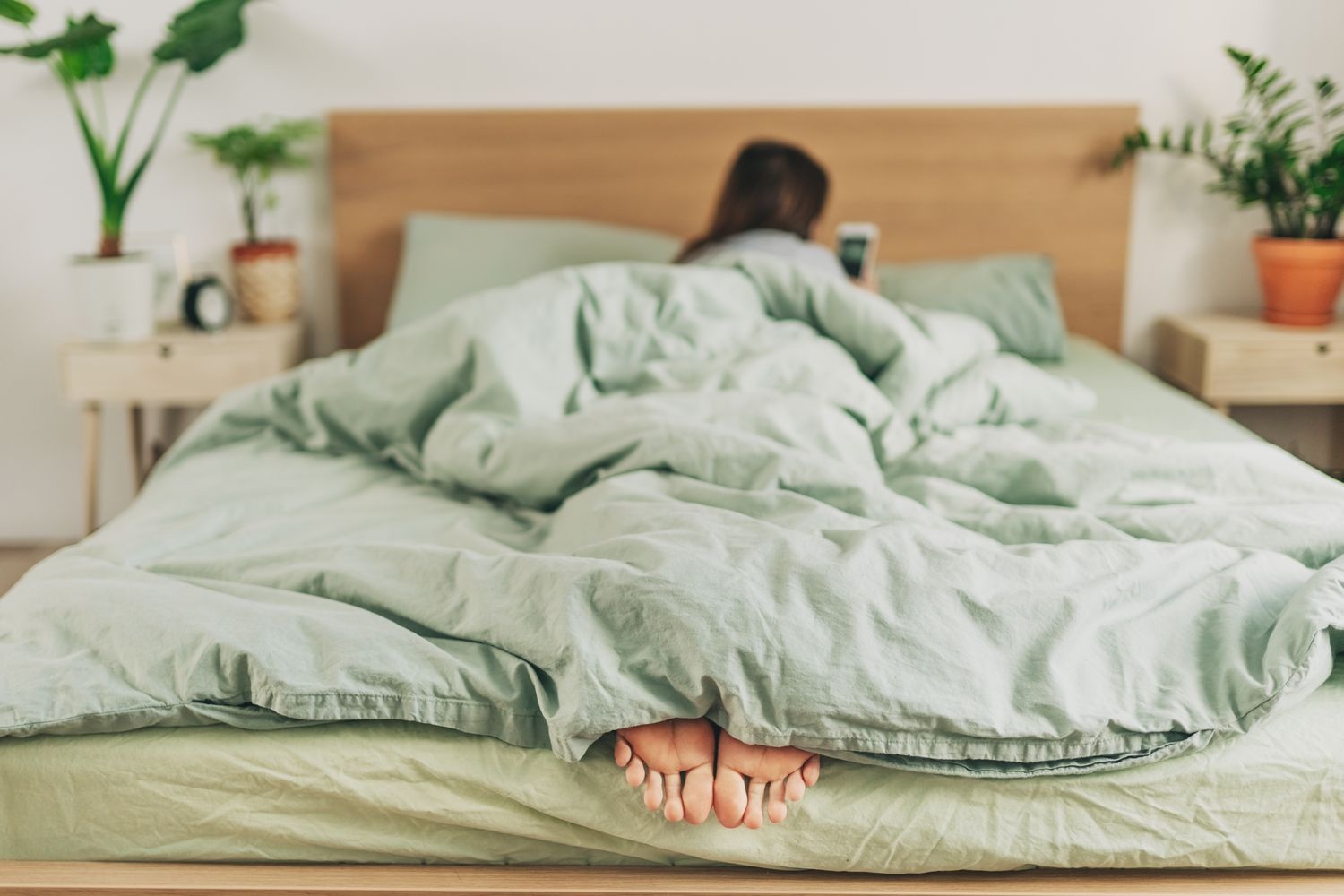
Amid concerns about Gen Z's tendency to stay put, many people see in it the golden philosophy of investors: be patient and know how to ignore the noise (Photo: Getty).
“Staying in bed” is an interesting snapshot of the challenges facing Gen Z. It shows the desire for a quiet moment to “be yourself” in a world that is too noisy. There is nothing wrong with allowing yourself a day of “stay” every now and then to recharge. But when it becomes a habit, an escape from responsibilities, it becomes a serious problem.
The difference between a successful investor like Anne Schreiber and someone who “lies around” hopelessly is that one chooses “inaction” as a deliberate strategy, while the other passively accepts it as a surrender.
Instead of judging, however, we can look at “bed-time” as an opportunity. Gen Z is at a crossroads: they can let their fatigue consume them, drown them in procrastination and debt, or they can turn their desire to “do nothing” into a financial advantage. By automating good habits and adopting a long-term investing philosophy, they can build wealth in a sustainable and stress-free way.
Perhaps Gen Z’s financial superpower lies not in having to work harder, but in their ability to find peace and strength in silence, even if it is silence under a warm blanket. They can rest while letting time and compound interest do their work. And that, perhaps, is the definition of wealth in the 21st century.
Source: https://dantri.com.vn/kinh-doanh/gen-z-kiet-que-tai-chinh-nam-li-tren-giuong-de-tron-tranh-hay-de-dau-tu-20250919223146983.htm



![[Photo] Closing ceremony of the 18th Congress of Hanoi Party Committee](https://vphoto.vietnam.vn/thumb/1200x675/vietnam/resource/IMAGE/2025/10/17/1760704850107_ndo_br_1-jpg.webp)









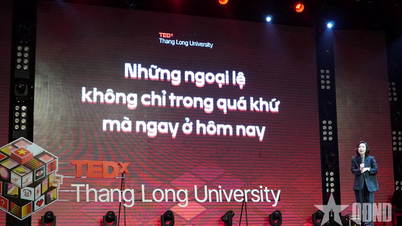












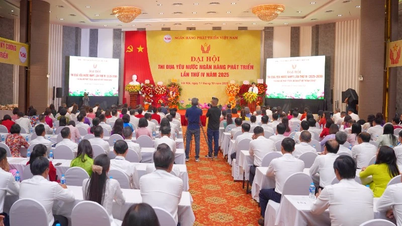









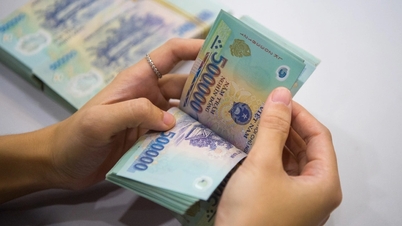


![[Photo] Nhan Dan Newspaper launches “Fatherland in the Heart: The Concert Film”](https://vphoto.vietnam.vn/thumb/1200x675/vietnam/resource/IMAGE/2025/10/16/1760622132545_thiet-ke-chua-co-ten-36-png.webp)



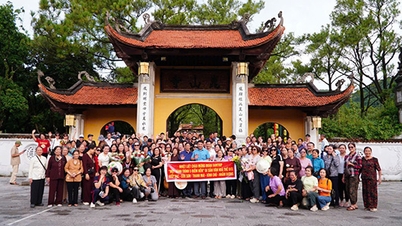










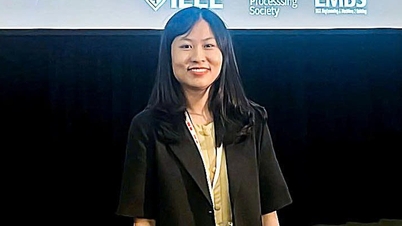





















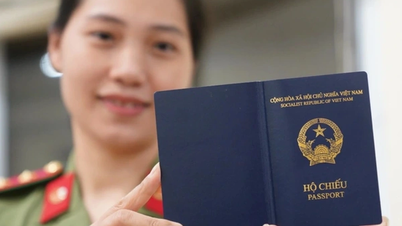





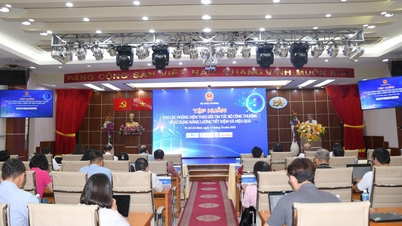

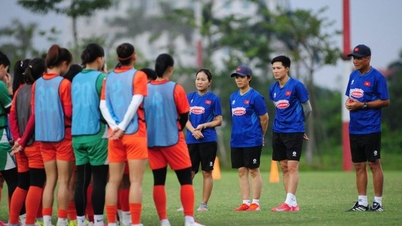

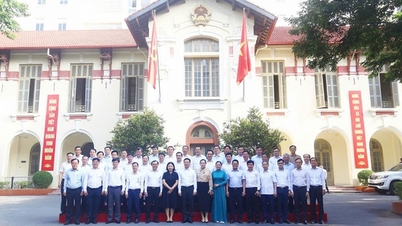

























Comment (0)